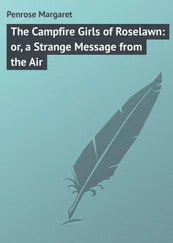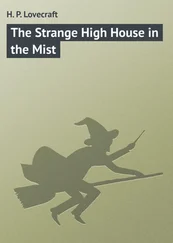I MUST HAVE dozed off. When I opened my eyes, we were on a mountain road. I had been awake until we had gotten off the expressway onto a smaller highway that I didn’t know the name of. The three of us had chatted intermittently, about the fact that Sensei had taught Japanese, that I had been his student, that my grades in Japanese class had been unremarkable, that the bar owner’s name was Satoru, that there were lots of modashi mushrooms to be found in the mountains where we were heading. I might have liked to know more about these modashi mushrooms, or to share just how strict a teacher Sensei had been, but since Satoru kept turning all the way around whenever he spoke to us, Sensei and I made sure not to seem too interested in eliciting small talk.
The car slowly climbed the mountain road. The windows had been open, but Satoru closed his now. Sensei and I followed suit, rolling up the rear windows. The air had grown slightly chilly. I could hear the crystalline sound of birdsong from within the mountains. The road gradually narrowed.
We came to a fork in the road. One way was paved, the other way was gravel. Just as we pulled onto the gravel road, the car came to a stop. Satoru got out and walked further up the gravel road. Sensei and I stayed in the backseat as we watched Satoru.
“Where could he be going?” I pondered, and Sensei tilted his head. I opened the window and cool mountain air rushed in. The birds’ voices were close. The sun was now high in the sky. It was past nine o’clock.
“Tsukiko, do you think we’ll get back?” Sensei said suddenly.
“What?”
“Somehow I have the feeling that we might not make it back home again.”
You’re not serious, I replied, and Sensei smiled. He fell silent after that, staring at the rearview mirror. You must be tired, I added, but he shook his head.
“Not at all. Not at all!”
“You know, Sensei, it’s not too late to turn back.”
“‘Turn back’? How do you mean?”
“Well…”
“Let’s go along with this, together. No matter where.”
“What?”
Was Sensei having a bit of fun? I stole a glance at his face but his expression was the same as always. Calm and reassured. He was sitting up straight, his briefcase lying next to him on the seat. While I puzzled over this, Satoru came down the hill with another person in tow.
The other man was a perfect double of Satoru. The two of them opened the trunk and hurriedly carried the packages up the hill. Just as I thought they were out of sight, they returned, both of them stopping beside the car to puff on cigarettes.
“G’morning!” Satoru’s double said as he got into the passenger seat.
“This is my cousin Toru,” Satoru introduced him. Toru looked just like him, in every way. His face, his expression, his build, even the air about him—they were exactly alike.
“So, Toru, I hear that you enjoy Sawanoi saké,” Sensei said.
With his seatbelt fastened, Toru twisted himself around to face the back. “That’s right, I sure do!” he replied cheerfully.
“But saké from Tochigi is still better,” Satoru added, turning around at the same angle as Toru. The car had started up the mountain road. Just as Sensei and I each let out a cry, the front end of the car scraped up against the guardrail.
“Idiot,” Toru muttered nonchalantly. Satoru smiled as he turned the steering wheel. Sensei and I let out another sigh. I could hear muffled birdsong from the forest.
“SENSEI, ARE YOU going to hike in those clothes?”
We had driven for another thirty minutes or so after Toru joined us, then Satoru had stopped the car and turned off the engine. Satoru, Toru, and I were all wearing jeans and sneakers. We got out of the car, and the two of them started bending their knees and stretching their legs. I followed their lead. Only Sensei stood still, completely upright. He wore a tweed suit with leather shoes. His suit looked old but well-tailored.
“You’ll get dirty,” Toru continued.
“It does not matter if I get dirty,” Sensei replied, shifting his briefcase from his right hand to his left hand.
“Would you like to leave your briefcase?” Satoru asked.
“That won’t be necessary,” Sensei replied imperturbably.
Without further ado, we started to climb the wooded path. Satoru and Toru both wore similar rucksacks on their backs. Theirs were climbing daypacks, about one size larger than the one I was carrying. Toru led the way, and Satoru brought up the rear.
“The ascent is surprisingly tough going,” Satoru said from behind.
“Uh… Yes, it is,” I said, as Toru said from ahead in the exact same voice, “Easy, just take your time.”
Every so often I could hear a sound like ta-ra-ra-ra-ra, ta-ra-ra-ra-ra . Sensei kept a steady pace as he climbed along the path. He wasn’t particularly out of breath. I, on the other hand, was considerably winded. The ta-ra-ra-ra-ra, ta-ra-ra-ra-ra became more insistent.
“Is that a cuckoo?” Sensei asked.
Toru turned around to reply. “No, actually, that’s a woodpecker. Sensei, you must know a lot about birds to recognize a cuckoo’s call.”
He went on, “That’s the sound the woodpecker makes when he pecks at a tree trunk, looking for insects to eat.”
“He makes quite a racket,” Satoru said from behind, laughing.
The path grew steeper and steeper. It was about as narrow as an animal trail. Autumn grasses had grown thick on either side, and they brushed against our faces and hands as we walked along. At the foot of the mountain, the fall foliage had yet to change but up here most of the leaves were tinged red or yellow. The air was cool and pleasant, but I had broken into a sweat, due to the fact that I never exercised. Sensei, however, appeared quite relaxed, carrying his briefcase lightly in one hand.
“Sensei, do you do a lot of mountain climbing?”
“Tsukiko, this is not what one calls mountain climbing.”
“I see.”
“Look, there’s the sound of the woodpecker eating insects again.”
I chose not to look, instead keeping my head down as I continued to walk along. Toru (or was it Satoru?—I couldn’t tell which way the voice came from) called out, “Sensei, you’re doing well.”
Then Satoru (or was it Toru?) called out in encouragement, “Keep it up, Tsukiko, you’re much younger than Sensei.”
The path seemed like it would go on forever. The ta-ra-ra-ra-ra was now interspersed with calls of chi-chi-chi , and ryu-ryu-ryu-ryu-ryu , and gu-ru-ru-ru-ru .
“We’re almost there, aren’t we?” Toru said.
“I’m sure it’s right around here,” Satoru replied. Toru suddenly veered off the path. We traipsed into an area where there were no tracks of any sort. Just one step off the path, the air suddenly felt dense and thick.
“They’re around here, so keep your eyes on the ground,” Toru said as he turned around.
“Be careful not to trample them,” Satoru added from behind.
The ground was moist and damp. After a while, the undergrowth became sparse and instead there were clusters of trees. Here there was a gentle incline, and it was much easier to walk without the grasses catching at my steps.
“I’ve found something!” Sensei cried out. Toru and Satoru ambled their way closer to Sensei.
“Well, that’s unusual,” Toru said as he crouched down.
“Is it a Cordyceps sinensis ?” Sensei asked.
“The caterpillar is still pretty big.”
“It must be some kind of larva.”
The three of them exchanged opinions. Under my breath, I muttered, “ Cordyceps sinensis ?”
Sensei took a stick and drew the Japanese name in four large characters on the ground: Tō chū ka sō . “Winter insect summer plant. Tsukiko, you weren’t listening very closely in science class, either, were you?” he scolded.
Читать дальше
![Хироми Каваками Strange Weather in Tokyo [= The Briefcase] обложка книги](/books/29150/hiromi-kavakami-strange-weather-in-tokyo-the-br-cover.webp)










